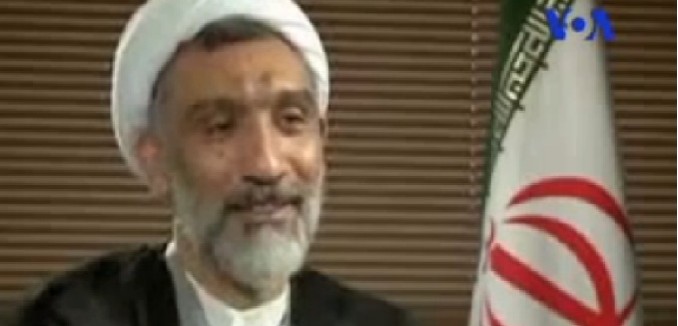Concerns that began to emerge early this week regarding extremists inside the proposed cabinet of Iranian President Hassan Rouhani deepened this week.
Rouhani has promised to moderate Iran’s foreign policy, but observers have raised concerns that his new foreign policy team is committed to bolstering Hezbollah, and that he himself is “hard-liner when it comes to Israel and Iran’s relationships with resistance groups” such as Hezbollah and Hamas.
Rouhani has also promised to moderate Iran’s domestic policy. But Radio Free Europe/Radio Liberty reported this week that his Rouhani’s pick for justice minister, Mostafa Pour-Mohammadi, has been subject to sustained criticism by human rights groups since the mid-2000s:
Purmohammadi, who heads Iran’s General Inspectorate Organization, a body linked to Iran’s judiciary, attracted attention in 2005 when he joined former President Mahmud Ahmadinejad’s cabinet as interior minister. Human Rights Watch (HRW) criticized that appointment at the time in a report titled “Ministers Of Murder,” which highlighted Purmohammadi’s alleged role in the 1988 executions, the assassination of political figures abroad, and the 1998 killings of intellectuals inside the country while he was a director in the Intelligence Ministry.
Analysts have also begun to publish extensive, broader analysis of Rouhani’s cabinet. A policy brief issued this week by the Foundation for Defense of Democracies (FDD) described the proposed cabinet as made up of “unprecedented” number of Ministry of Intelligence and National Security (MOIS) veterans. A separate recently published brief, this one by Washington Institute Senior Fellow Mehdi Khalaji, describes Rouhani’s efforts to “form a technocratic, security-focused cabinet whose intelligence and political ministers are close to [Supreme Leader Ayatollah Ali] Khamenei.”




